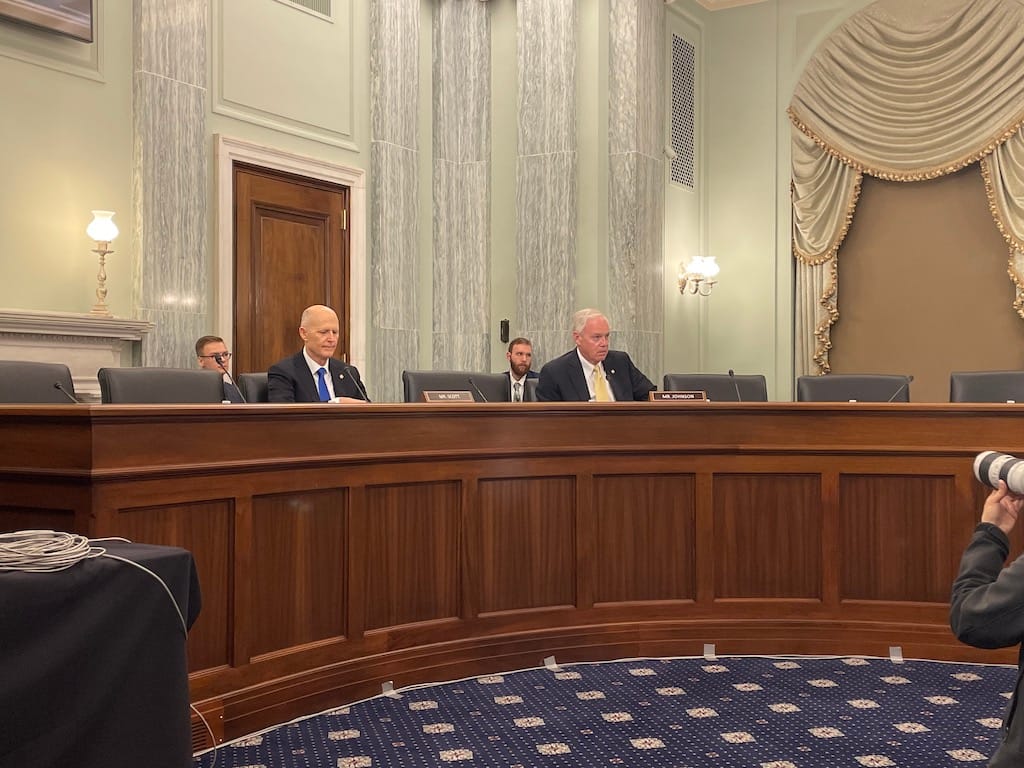Incentives Crucial to Domestic Semiconductor and Chip Production, Senate Committee Hears
Technology companies, including Intel, are lobbying for legislation incentivizing domestic production of chips crucial to many sectors.

WASHINGTON, March 28, 2022 – Technology companies appearing before the Senate Commerce committee urged Congress to push forward legislation that would help finance the domestic production of semiconductors, which they said are primarily supplied by foreign companies.
On Wednesday, the committee heard from the CEOs of Micron, Lam Research, PACCAR, and Intel – the company that is scheduled to break ground this year on a $20 billion semiconductor manufacturing “mega-site” in rural Ohio, as was mentioned in President Joe Biden’s State of the Union address.
The hearing focused on semiconductors and chip manufacturing, including proposed legislation called the CHIPS Act — Creating Helpful Incentives to Produce Semiconductors (Chips) for America Fund – that is expected to inject $52 billion to incentivize domestic production of the product that is used in computers, transportation and telecommunications technology.
Only 12 percent of chip manufacturing happens in America, and six percent of that comes from Intel. However, while Intel has remained primarily U.S.-based, other countries can make the same chips for 30-80 percent cheaper, according to the Intel CEO Pat Gelsinger, who said such chips are “foundational to every other industry.”
Gelsinger also said that many overseas companies have government subsidies and incentives, which makes it easier and cheaper for them to make the chips and is why Congress needs to pass the CHIPS Act.
“Now is the time for action,” Gelsinger said. “While clearly there are concerns on how capital is allocated…without such steps, our industry will be further undermined. We will lose critical mass, I believe in the near future, and we will never have the opportunity to restore this industry on American soil. That’s why we’re here.”








